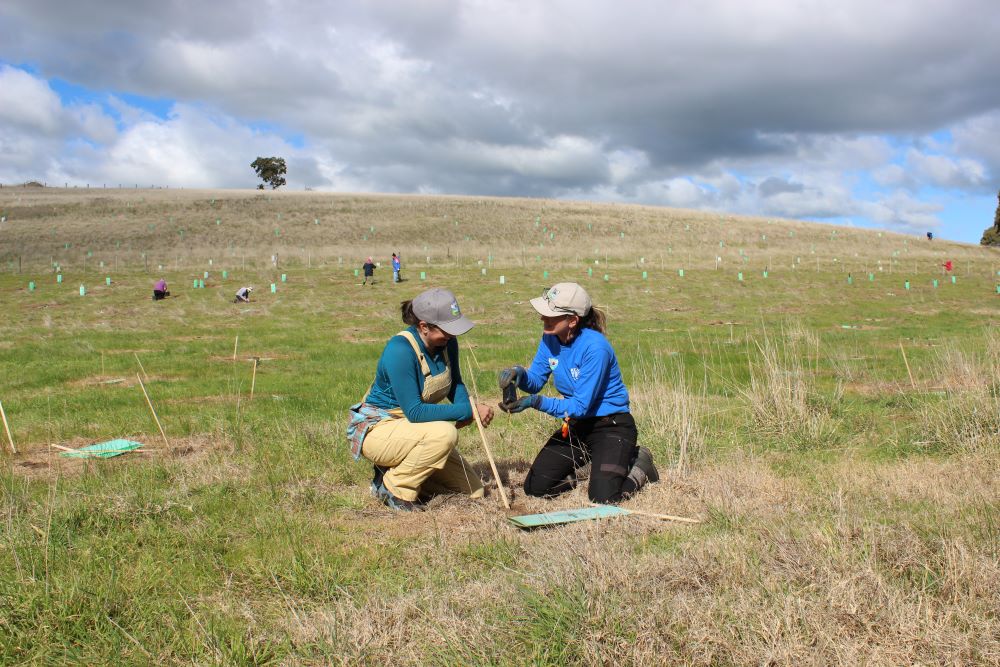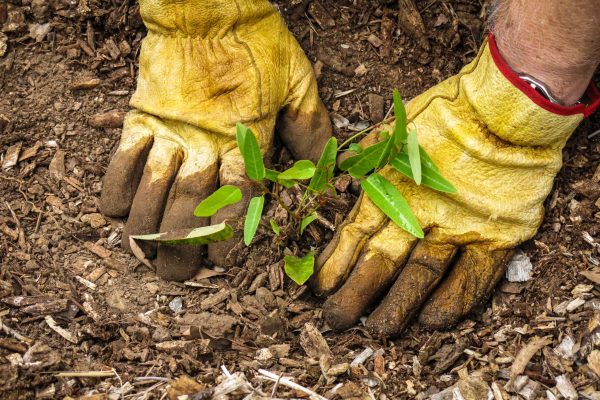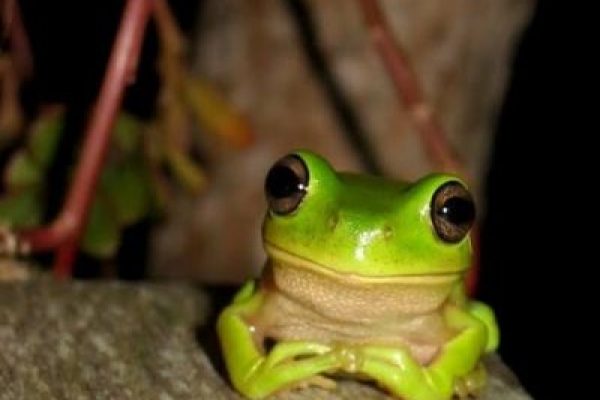December 11, 2023
|
Atkin Collective. Collectively caring for our native environment.
TREES PLANTED
200
Since early 2021, Gaynor Atkin has been running her own business Atkin Collective. An engagement specialist, Gaynor collaborates with decision makers on how best to connect with their communities, and supports organisations to develop community participation project design, plus provides strategic engagement advice on major projects. With over 15 years of extensive local government experience and knowledge throughout the UK and Australia, (specifically Regional Victoria), Gaynor is well placed in this capacity to bring change.

Providing a warm and genuine approach to community, stakeholder and client relationships, Gaynor applies a social anthropological research lens to her engagement and facilitation practice that leads to the development of purposeful and effective strategies ensuring an authentic connection with the intended audiences.
More specifically, Atkin Collective is a group of local government professionals who share genuine commitment to delivering a new type of consultancy. Utilising an imaginative and multi-layered approach, Atkin Collective has been created to deliver services and provide training to local government organisations by people that have worked in local government and understand their unique complexities.
Through Gaynor’s generosity and care for country, we plant 100 native trees annually on her behalf.
2023 | Melville, VIC | 100 trees
In early spring, the Lewis family took to planting 100 native tree seedlings on their property in southwestern Victoria, south of the Grampians. The Aboriginal Australian people of southwestern Victoria are Gunditjmara or Gunditjamara, also known as Dhauwurd Wurrung.
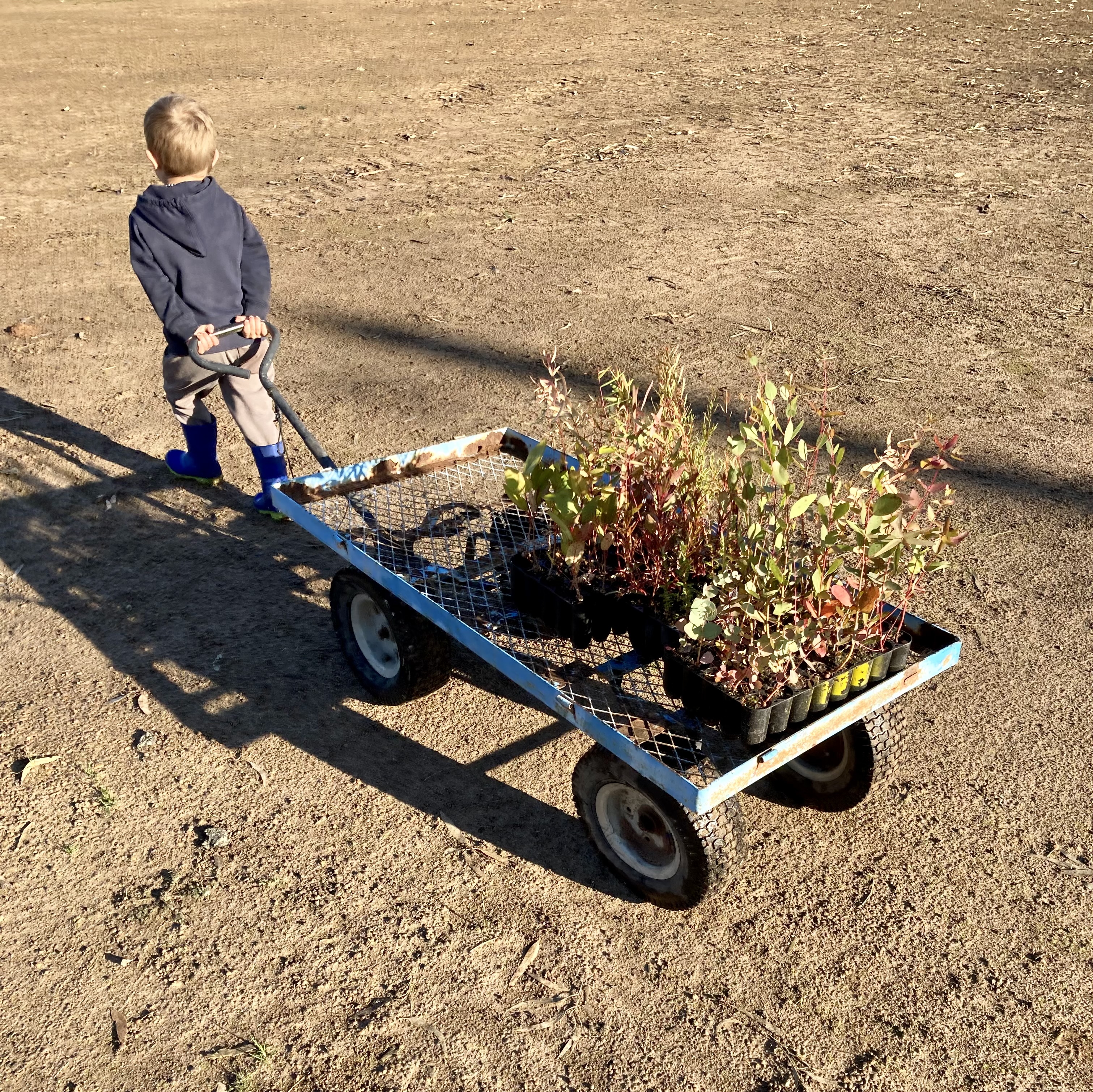
A variety of native seedlings, including Manna/White Gums, Swamp/Black Gums, Spotted Gums, Weeping Bottle Brush, Wallangarra White Gum, Red Iron Bark, Rough Bark Manna Gum, Woolly Teatree and Scarlet Bottlebrush, were chosen being suited to the environmental conditions in the area.
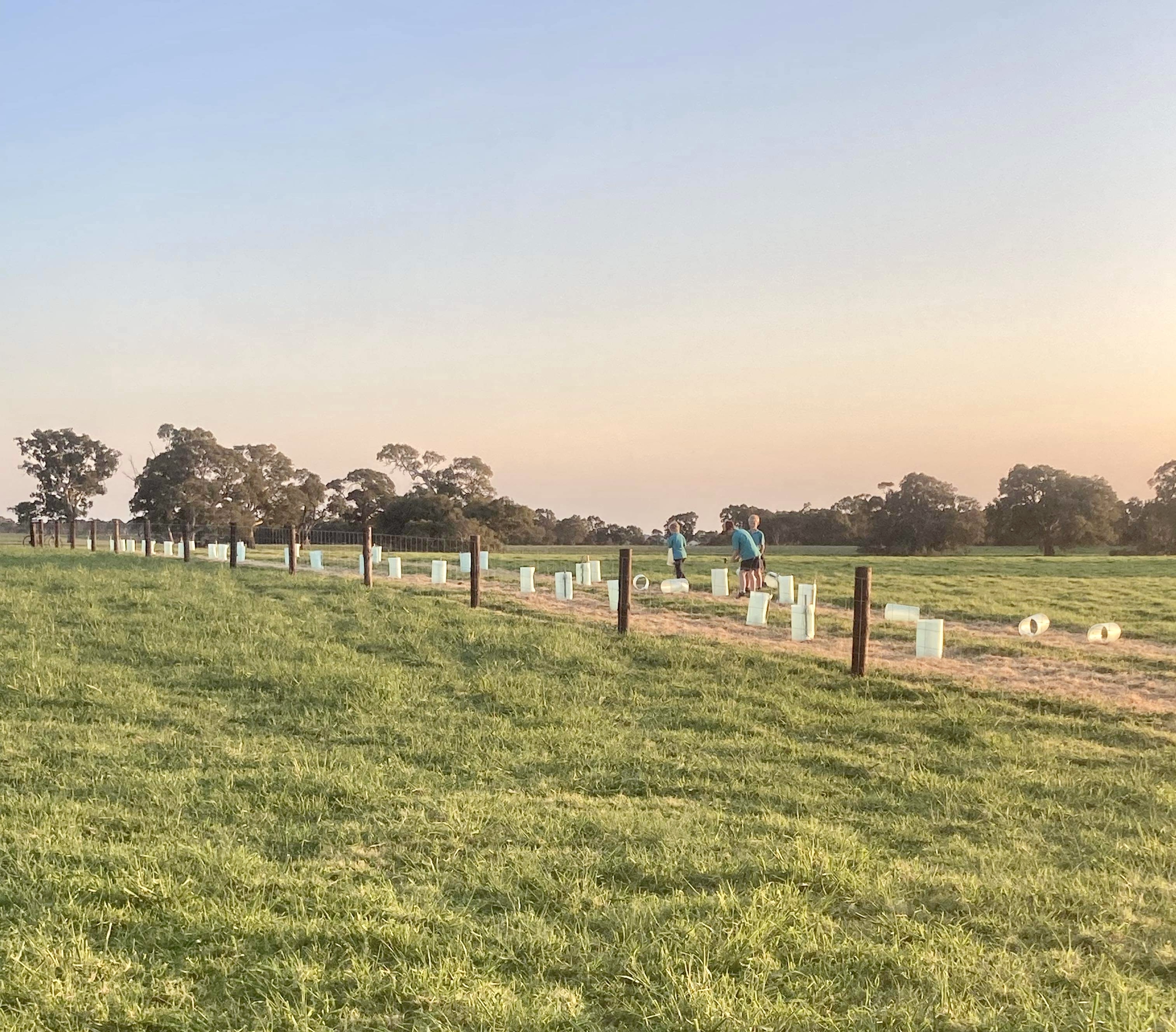
The site commonly sees ring tail and bush tail possums, as well as koalas, echidnas, kangaroos and a variety of birdlife, including kookaburras, native parrot varieties, wedge tailed eagles, hawks and owls.
We have now had a chance to plant our 100 seedlings, they are looking great. Thank you! We are looking forward to seeing what native animals and birds our little plantation will attract.
Thank you very much to those who have paid for our seedlings and allowed us to plant a wonderful native plantation, to be enjoyed for many generations to come.
The Lewis Family | Melville, VIC
2022 | Mornington Peninsula, VIC | 100 trees
The trees were planted by the Mornington Peninsula Koala Conservation (MPKC) as part of their Somers Koala Habitat Project. With over 70% of landholders confirming their intent to participate in this revegetation project, it is also backed by Mornington Peninsula Shire, Parks Victoria and the Department of Defence. And now with sponsors such as Fifteen Trees and Atkin Collective, this revegetation project has grown by leaps and bounds.
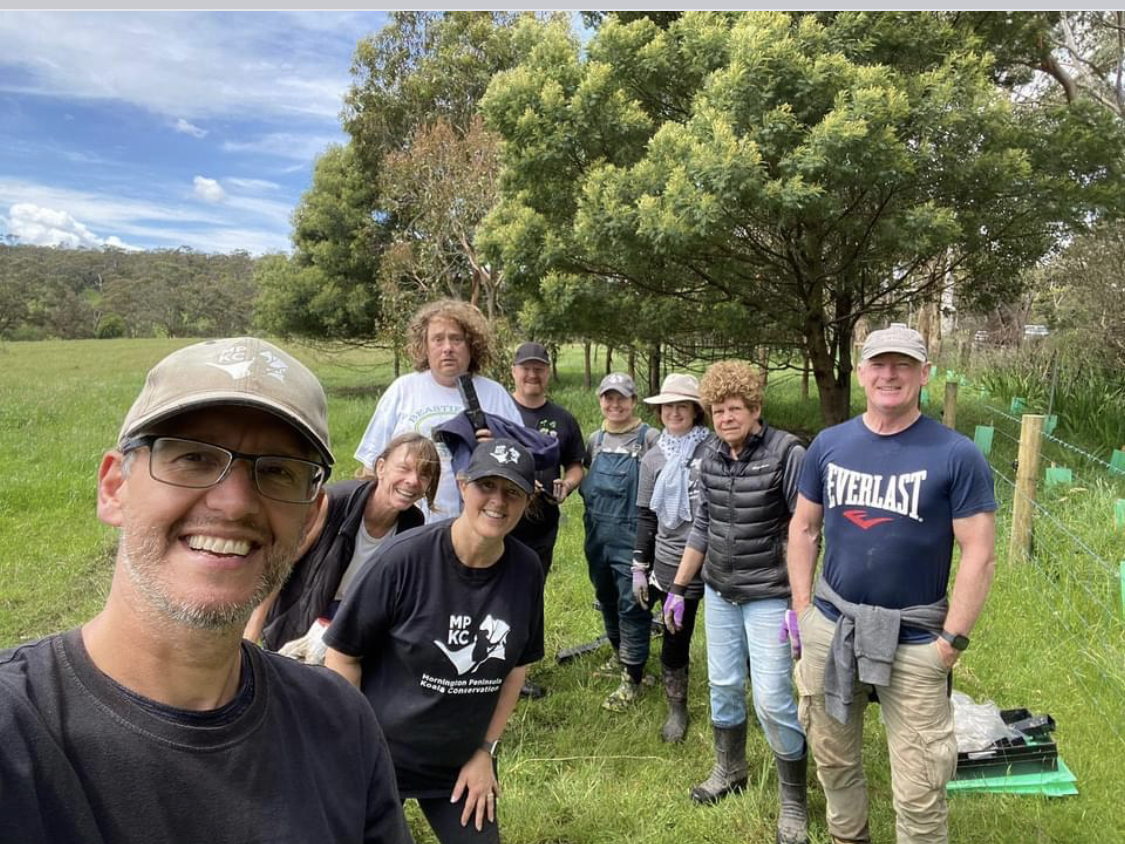
Here’s a few reasons why this project is so important:
- Recent research from Deakin University suggests that the koala population has been negatively impacted by the highly fragmented nature of habitat on the Mornington Peninsula,
- By providing a wildlife corridor biolink it will allow animals including koalas to move safely, to reach vital food resources and help maintain viable populations,
- Without this, koala populations will inevitably continue to decline, become isolated and may face local extinction.
Some of the trees planted included; Drooping Sheoak, Coastal Banksia, Messmate, Swamp Gum, Coastal Manna Gum, Narrow-leafed Peppermint, Black Wattle, Blackwood, Scented and Swamp Paperbark and Silky Hakea.
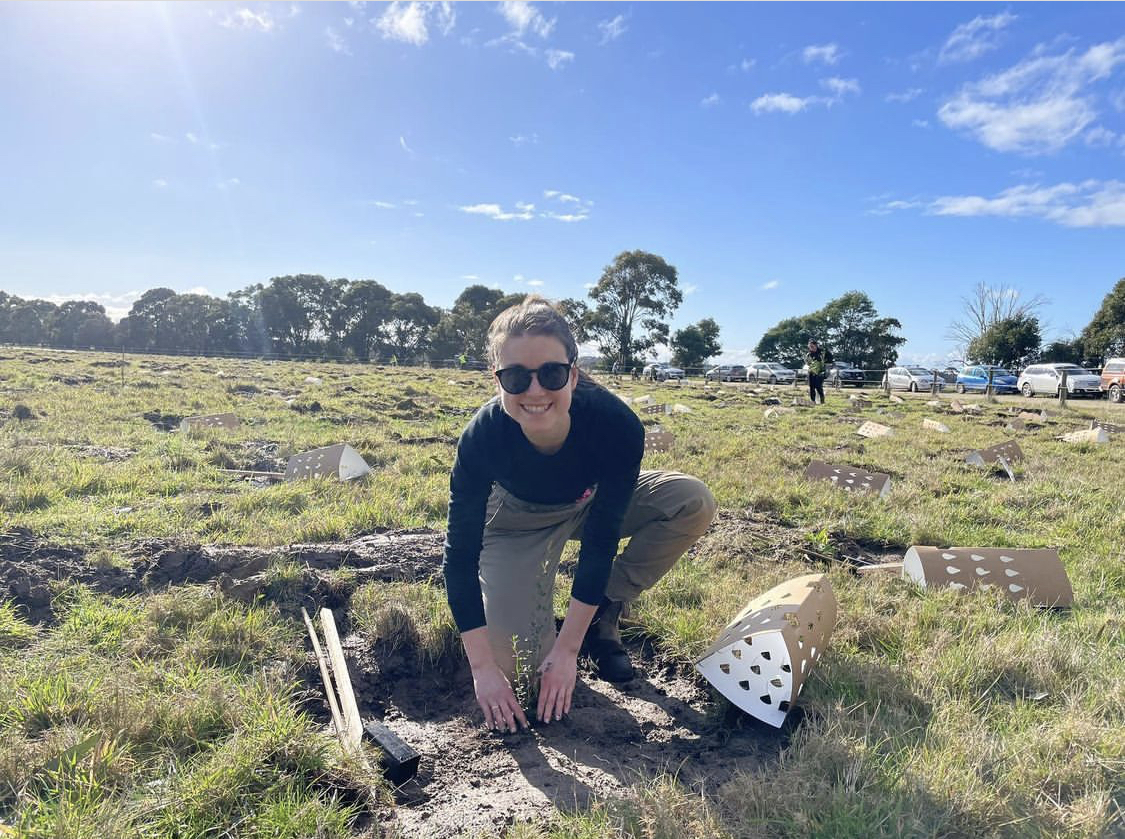
Thank you Gaynor and team for your generous contribution of 100 native trees for this important koala project on the Mornington Peninsula.
If you are interested in how your business and Fifteen Trees could work together, contact Colleen at <[email protected]> or check out our COMPANY page for more info.
Writer – Lou Ridsdale
Lou is a big fan of words and has been our Comms Manager since 2019.
She is a green thumb, Earth Lover, big-hearted nature freak, plus a savvy media and horticulture expert, who passionately believe that everyone can lead a more nourishing and sustainable life. Her passion for education + communication being the most empowering tool for change is reflected in her setting up her side hustle Hey Hoe Let’s Grow. She also founded Food Is Free Inc., a unique grassroots food security platform specialising in food security education. She fell in love with trees after reading The Magic Faraway Tree as a child.
You can find Lou here
RECENT TREE PLANTINGS
1,200 TREES PLANTED
135 TREES PLANTED
1110 TREES PLANTED
SIGN UP FOR OUR MONTHLY UPDATES.
Restoring Australian ecosystems. Supporting communities with their revegetation projects for a greener and healthier planet.
Fifteen Trees acknowledges Indigenous Australians as the traditional custodians of the lands on which we work, live and play.
We recognise that Indigenous Australians have cared for and lived in harmony with this land for millennia, and their knowledge and wisdom of the land endures.
We pay our respects to Elders past, present and emerging and stand in solidarity as Indigenous Australians seek a fairer and more sustainable future for the land and its people.
